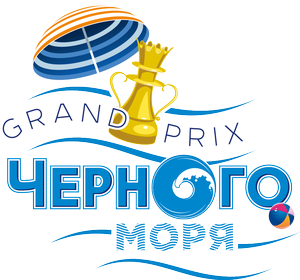Person of day - 17 APRIL 2024
SERGEI SHIPOV

A celebrated commentator, writer, coach and chess expert, Sergei Shipov was born in Murom, in the Vladimir region. Soon after, his family moved to Kirzhach, where young Sergei was taught to play chess. Kirzhach’s chess class was steeped in tradition- it was no accident that talented juniors like Vladimir Belov and Dmitry Lavrik originated from that city. Shipov proved himself early on in juniors chess; he was scouted and invited to the famous Moscow boarding chess school, where he studied in the same class as future grandmasters Evgeny Bareev and Yury Dokhoian.
After graduating from school, it looked like his career would tail off: while his classmates fought in the Premier Leagues of Soviet championships, he studied physics at Moscow State University and afterwards, he worked at the Institute of Chemical Problems. After the collapse of the USSR and the resulting crisis in Soviet science, Sergei Shipov became a professional chess player. He immersed himself in tournaments and became a master only one year later. A few years after that, he became a grandmaster. Shipov’s rating soon surpassed 2600 and at the 1998 Russian championship, Sergei split 1st-4thplaces.
In the 1990s, Shipov became a regular sparring-partner for world champion Garry Kasparov.
“The most impressive thing about Kasparov was his exceptional hunger for victory. Everywhere and in everything! Whether he played football or debated secondary topics. That is inevitable- he has a champion’s character. Not for nothing was he called “The Great and Terrible”.
Someone who won everything usually loses his motivation for further struggle and calms down. The best example of this is Spassky, a chess player of incredible talent, who performed a fantastic rise to the chess Olympus but lost all motivation afterwards. That, I believe, is the key reason behind his defeat in Reykjavik in 1972.
Kasparov didn’t repeat Spassky’s mistake. Having won the title, he continued to devote himself with all his might, never sparing himself or his assistants. That is why he was and remains number one in the chess world” wrote Sergei Shipov about the great player.
Shipov was always considered a specialist in rapid chess; he won large blitz tournaments such as the Garry Kasparov Cup in 2001 and the first Russian Internet blitz championship in 2004. In 2006, he won the Tromso Open, where he defeated Magnus Carlsen in an individual match.
At the turn of millennia, he began to write as a journalist and he was the first offer online commentary of chess tournaments on the plains of the Worldwide Web. He was the editor of kasparov-chess.ru and chesspro.ru and in 2006 he created his own project- the popular crestbook.com. He is a commentator for Internet channels like ChessCast.
He is the author of popular books like The Last Intrigue of the Century. Kasparov-Kramnik and Predators on the Chess Board, which was published in English in two volumes. He achieved notable success as a coach. Across the years, he helped famous grandmasters like Ian Nepomniachtchi, Daniil Dubov, Vladimir Belov and Svetlana Matveeva. At the present moment, he is working with Grigoriy Oparin- the leading Russian junior- and Andey Esipenko. He is known on the Internet under the pseudonym of “Crest”.
“Sergei Shipov was a forerunner of the new information age in our game and its coverage. Using a famous analogy, he can be titled the “Russian voice of chess”, like renowned commentator Alexey Popov was in Formula I. It is not that there are no decent commentators or journalists in Russian chess- there have always been some, but Shipov was the first to show that it is possible to convey a large amount of information about his favourite 64-square game in an interesting manner while remaining a good trainer and player.
In the times of information emptiness of the noughties- the period of recession and of closure of Chess Week- his reviews and commentary were the sole ray that warmed the hearts of Russian-speaking chess fans. I am sure that, were it not for Sergey, the generation of young chess journalists in our country would be very different and the desire to work with leading young chess players would attract far less respect in society.” (D. Kryavkin).























